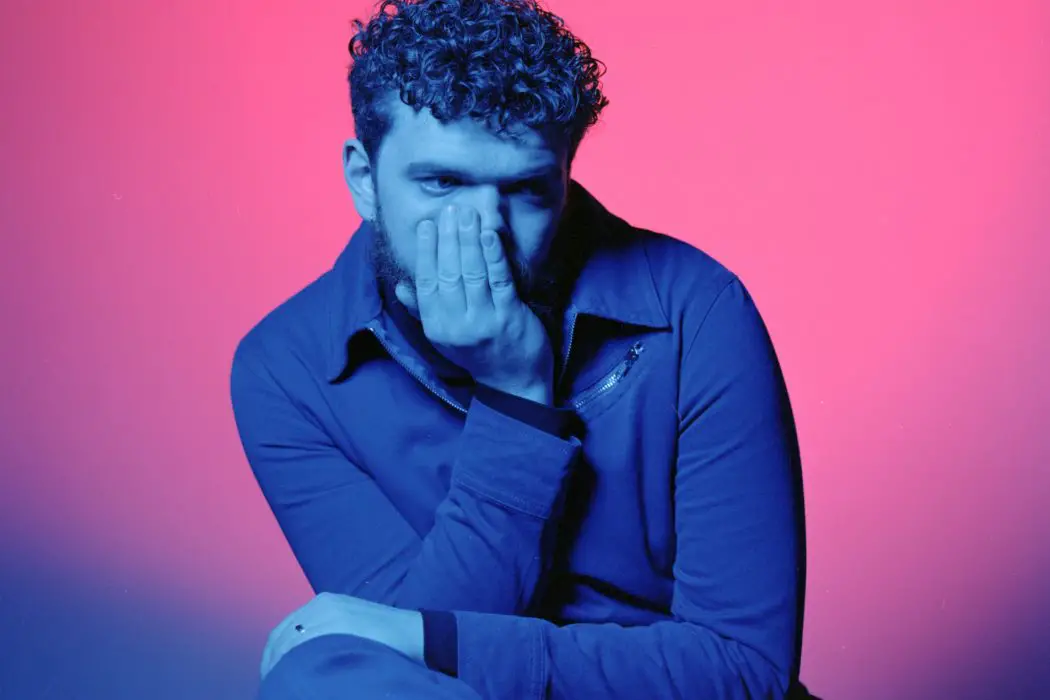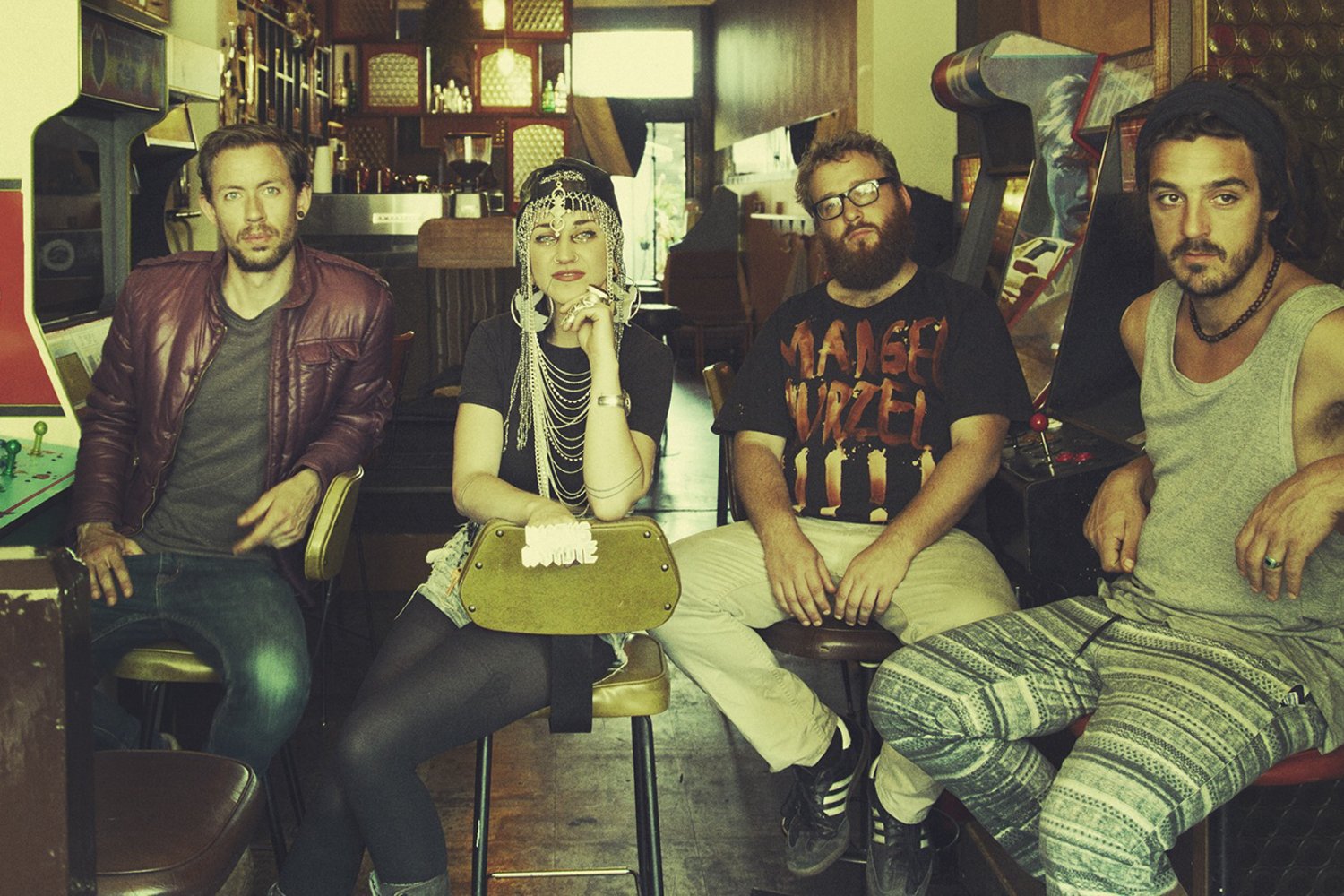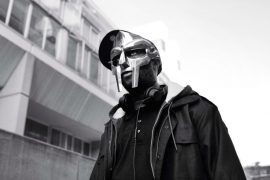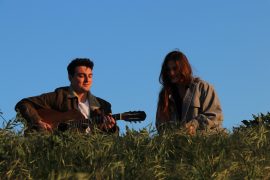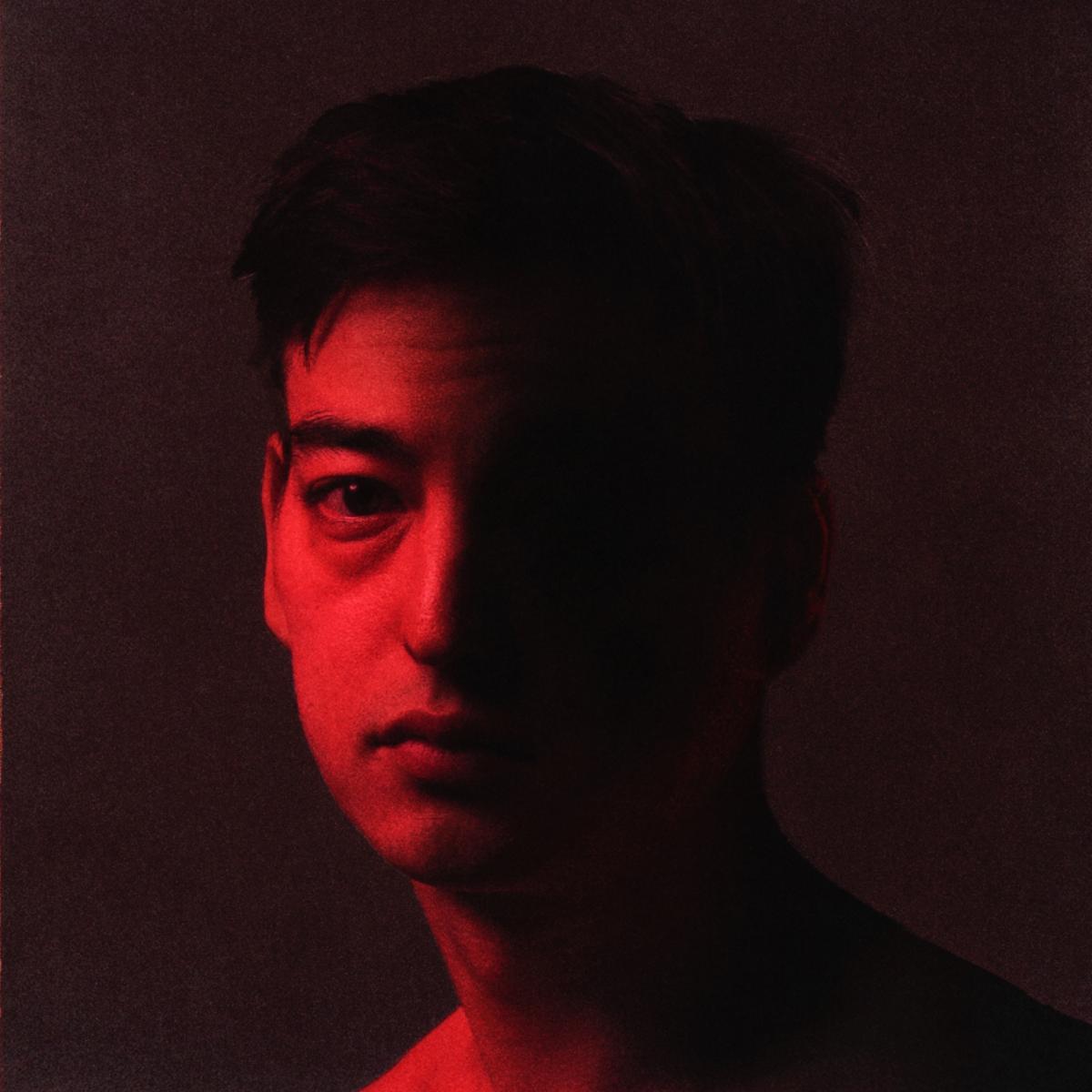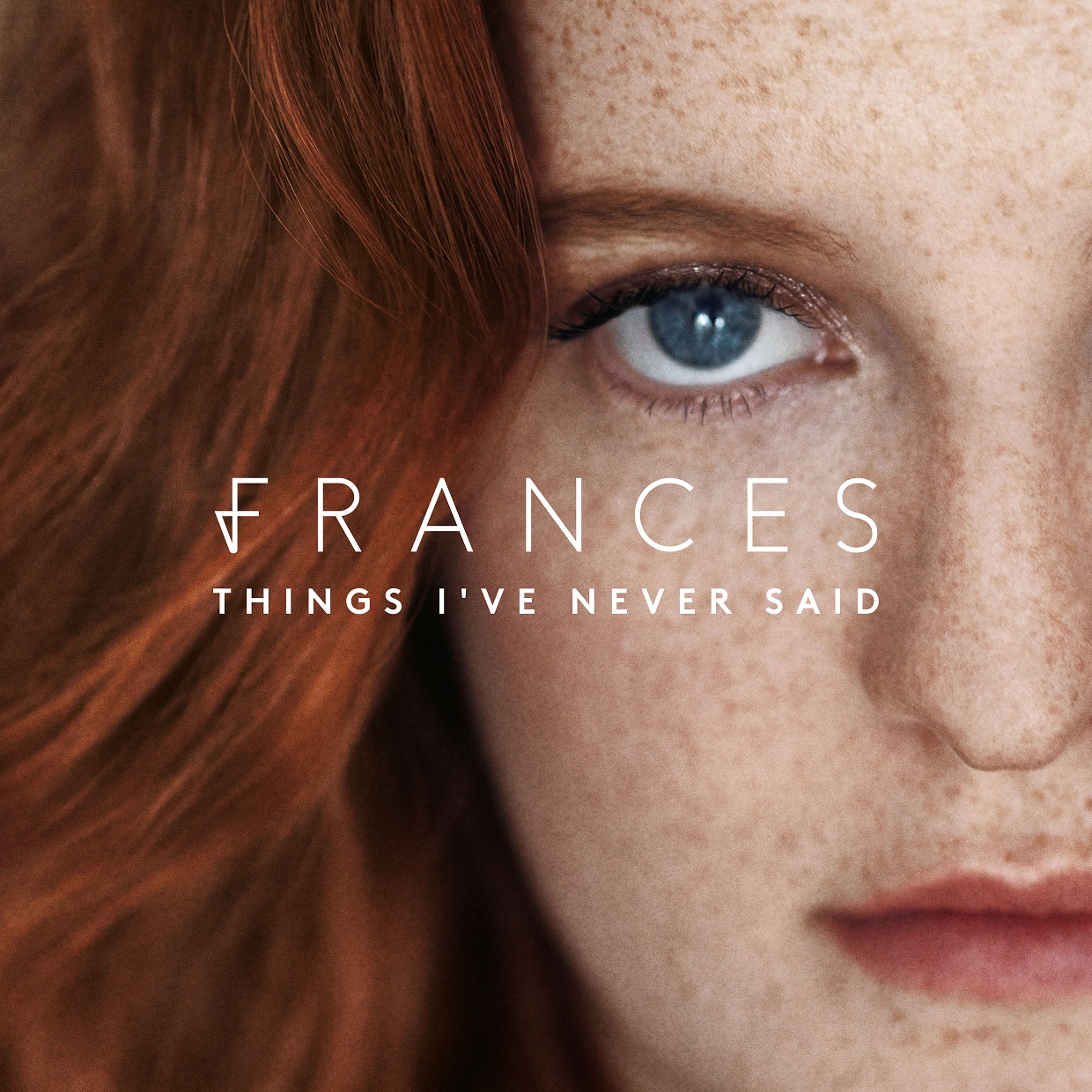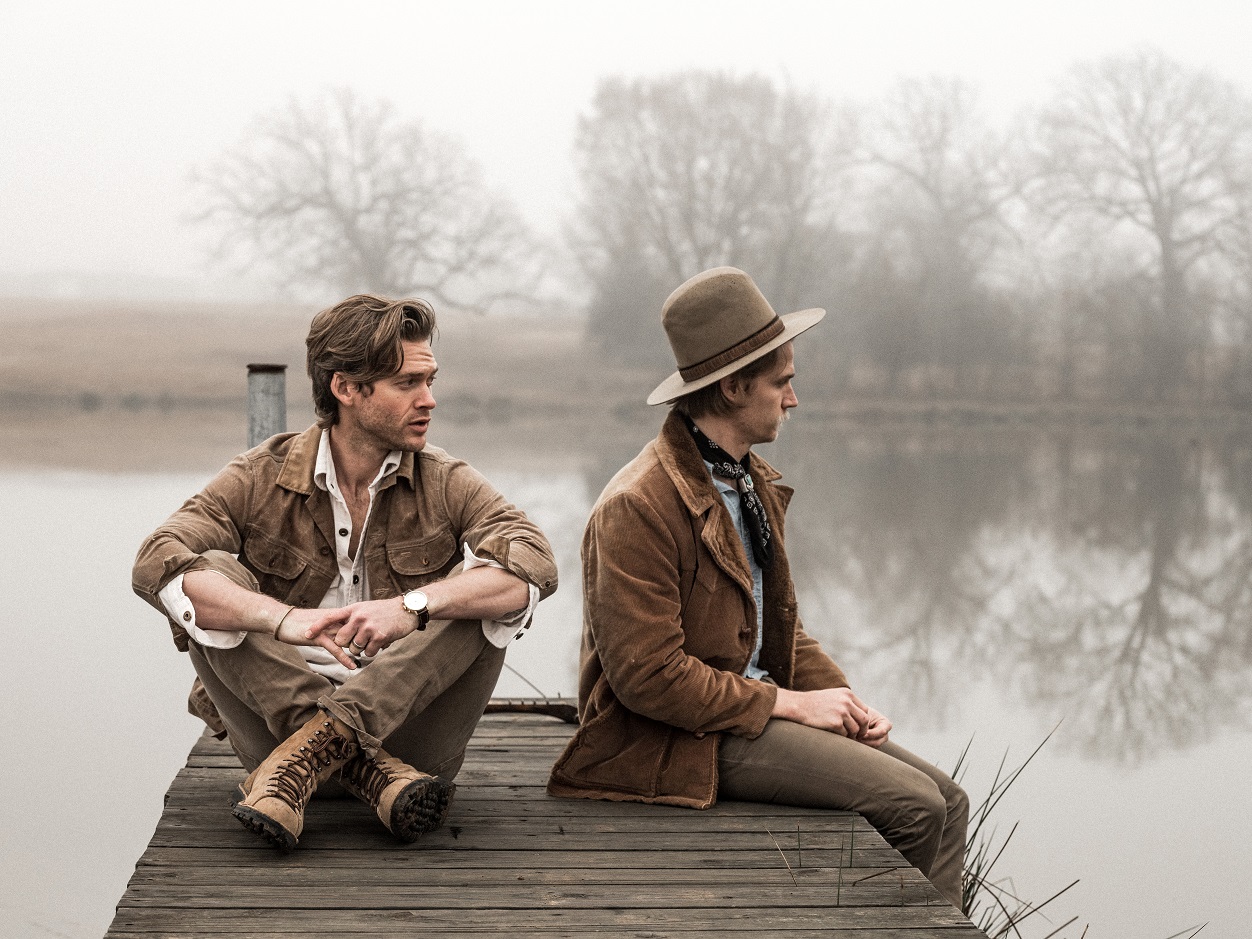Aside from indisputably being his finest work yet, Jack Garratt’s sophomore studio album ‘Love, Death & Dancing’ is a transparent, impassioned, and intimately vulnerable triumph: A valiant exploration of the artist’s personal, never-ending journey toward self-acceptance and self-love.
— —
Jack Garratt has been reckoning with himself for his entire life.
“I believe that my goal, and my journey in life, is to accept and love the things I hate about myself – to love that part of me that hates me,” the 28-year-old shares, chatting with me from the floor of his studio. “If I can’t do that, [then] that voice in me is so strong, and it’s so consistent, it will overpower me. The only way I can control it is to accept it for what it is and ask it what it needs from me to be able to get through the day.”
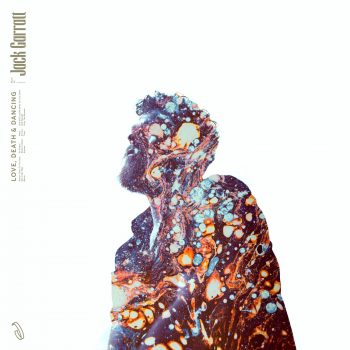
It’s a loaded statement – this idea of accepting oneself for who he is, flaws and all – and it’s one Garratt proceeds to unpack layer by layer, both in our conversation and throughout his newly-released second studio album. Released June 12, 2020 via Island Records / Interscope Records, Love, Death & Dancing is a remarkably compact work of art for what it is. The artist’s follow-up to 2016’s debut album Phase – for which he won both the BBC Sound of 2016 poll, as well as the BRIT Awards’ Critics’ Choice Award – is relentless and indefatigably intense in its expression of self-reflection and self-discovery. Jack Garratt plummeted into his darkest depths, and while he didn’t plan for it to go that way, Love, Death & Dancing is sort of his redemption story, telling the tale of how he fell and climbed his way back up.
Even if (he knows) he’s ultimately going to fall again.
“There’s a lot of reflective songs on the record, there’s a lot of questions being asked, and there’s not a lot of answers – because I don’t necessarily think that’s my job,” Garratt explains. “I’m not going to be fine forever. I’m happy and content with myself at the moment, but I’m not going to be forever – and I’m not scared by that. I am proud of that. I love that my emotional journey is a cyclical one. It’s a snake that eats its own tail.”
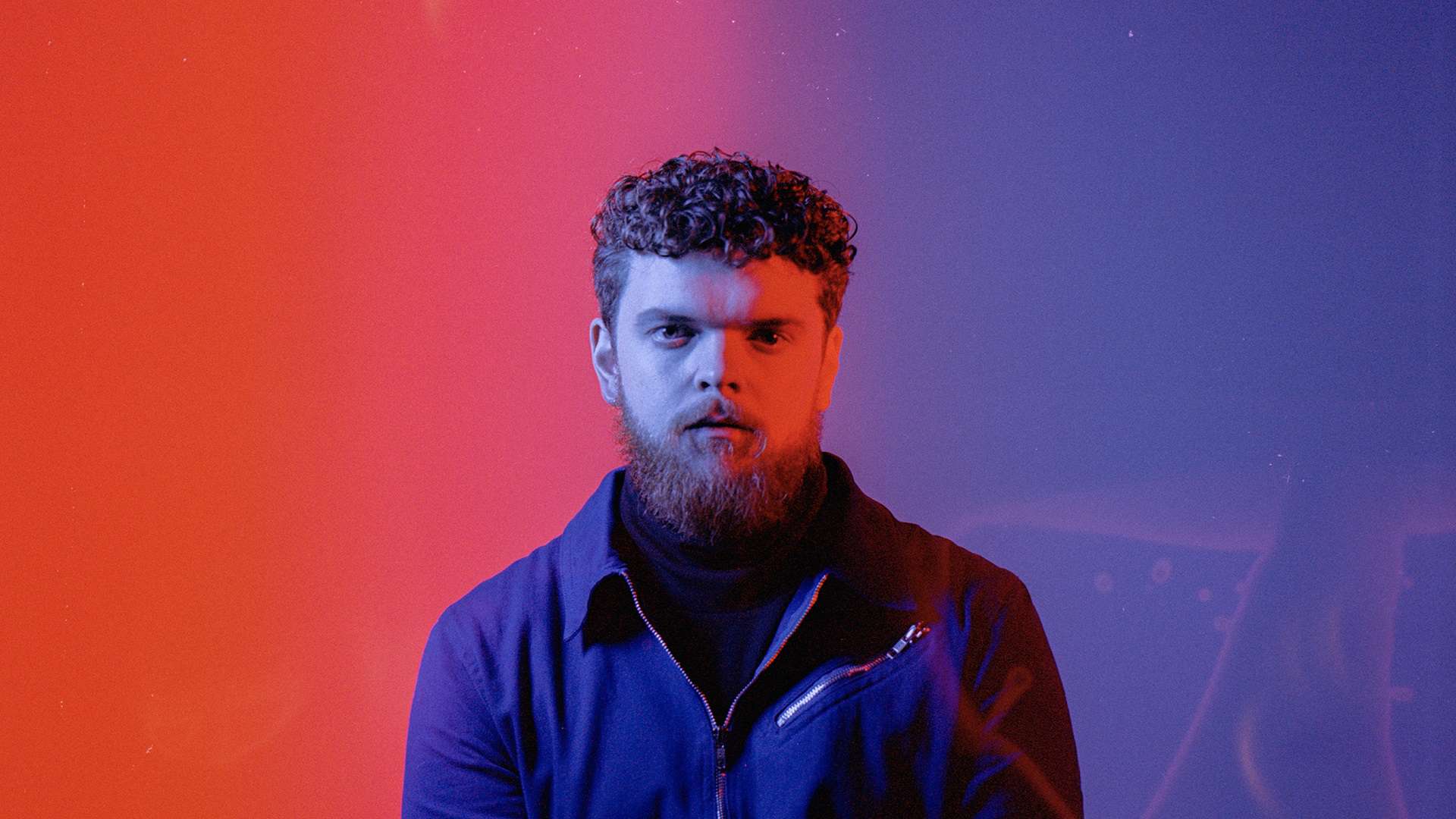
After at least three years completely out of the public eye – away from releasing music, as well as touring – Jack Garratt returned to the spotlight this past February with the new songs “Time,” “Mara,” and “Return Them to the One.” The three-track set, entitled Love, Death & Dancing (Vol. 1), reintroduced the artist with fresh fervor and new depth.
“Garratt’s long-awaited return is just as powerful, meaningful, and spectacular as we could have imagined,” Atwood wrote at the time. An uptempo, pulsing track, “Time” (which opens the digital album) encourages us to move and shake while Garratt confronts demons of self-doubt and inertia. “Why is it not enough to be fine?” Garratt asks within the song’s first seconds, his emotive voice aligning with effusive, jumpy keyboards and frenetic guitars. A groove sets in as he begins a rhetorical pondering of big, existential topics for which he will never find a satisfying answer: “You’re overthinking, in a rut and terrified of giving in to who you are and losing your mind,” he continues.
Now everything you think you know
Of your design
Is trembling at the edges
You’re not alright
Afraid to look inside yourself
Afraid you’ll find
That an hourglass is just a glass
With sand inside
But time is on your side
“Time” is a window into Garratt himself – of the depression he struggled with in the wake of his critically-acclaimed debut, of the pressure he put upon himself and felt from others, and of the journey that took him from this dark space, into one that was perhaps a little brighter and healthier for the soul.
In his words, it’s “a hugely ambitious, wide-sounding, detailed answer about timelessness, and about cyclical time, and about repetition of emotion, and about acceptance.” Garratt takes a breath. “And that’s so much of what the album is about. It’s so much of what I’ve learned – just in my general mantra at the moment, I guess – my interest, like how I perceive the world. Sonically, it’s identifiably me, but it’s a newer version of me. It’s me now. It’s not me then; it’s not me tomorrow; it’s me now.
He continues, “I’m really happy that the first song I get to share with people is a real moment where I was proud of myself for the first time in about two or three years.”
Love, Death & Dancing finds Garratt reinvigorated, fully awake, in tune with himself, and invested in his story.
Poetic as it lyrics may be, the album is quite literal: “The title was originally going to be ‘Songs about Love and Death that People Can Dance To,’ Garratt explains. “I’ve always said that I like to make dance music for people who like to sit down, or dance music for people who don’t want to go out. That’s exactly what I like doing – I love listening dance music; I just much prefer listening to it when I’m at home in my living room with a blanket and a glass of red wine. Just because that’s where I enjoy listening to music doesn’t mean I should starve myself of a good four on the floor, and I think that I make music for that exact listener… It’s very honest; it’s very bare, it says exactly what it is: There’s no unnecessary, elaborate metaphor. It simply is an album of love songs, of death songs, and of songs to dance to.”
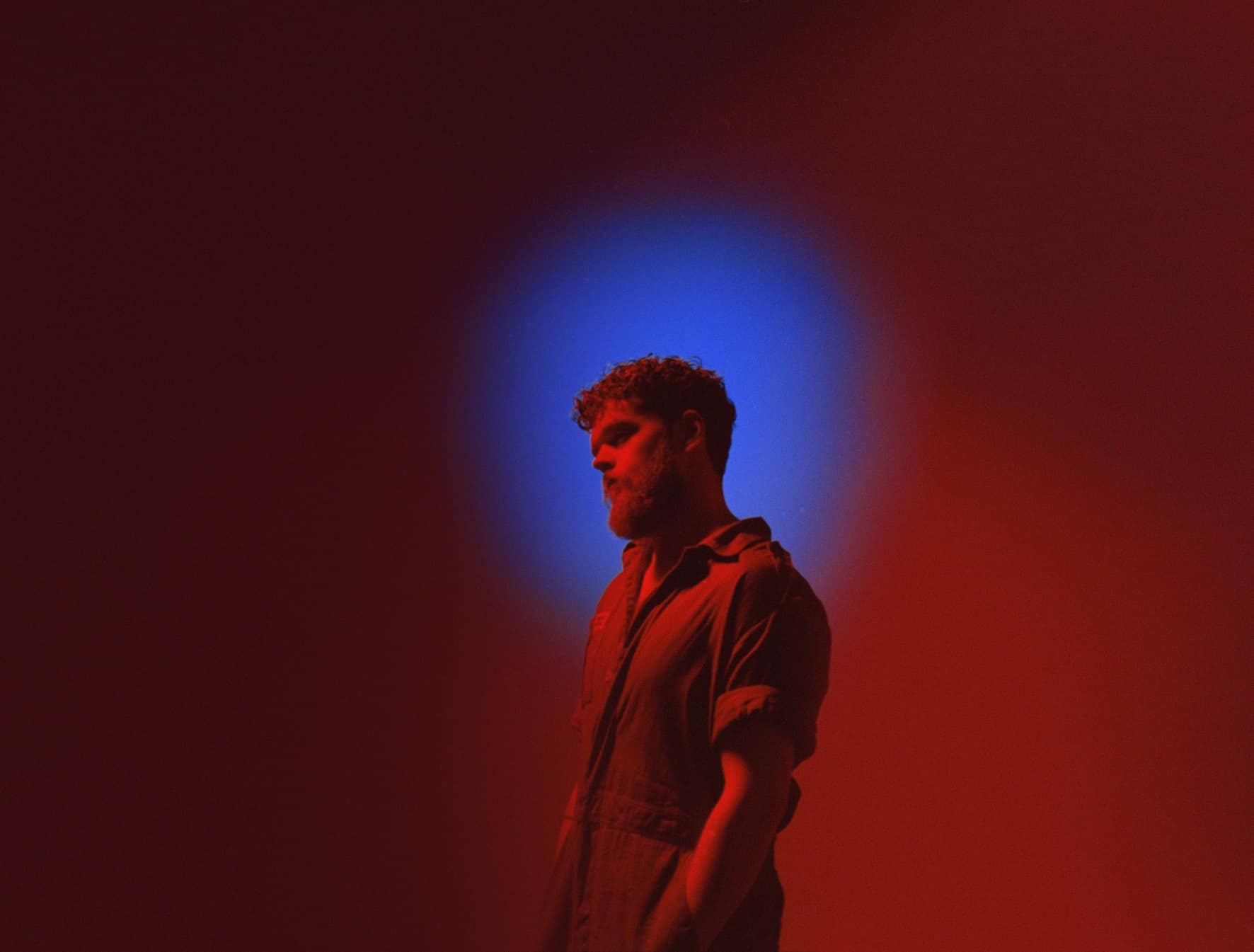
Garratt’s questions cut deep.
How can I accept your love if I can’t even love myself?
He allows himself to be emotional.
I address myself as something that deserves love rather than deserving hatred.
He is brutally honest.
It’s me coming to terms with the fact that I might feel like this forever… learning to love the parts of myself that hate myself.
And we’ve only just begun to discuss the songs themselves: Love, Death & Dancing has a lot to love, and a lot for us to dance along to.
While “Time” is a deserving lead single, it is not the sole focal point on the record: Whether you’re bathing in the sweet, cool light of “Mara,” the turbulent tranquility of “Doctor Please” (“If home is where the heart is, mine’s falling down… but a sign outside in your handwriting says that it’s alright not to be okay“), or the raw and transparent aching of “Circles,” the record soars with a life and light of its own.
I’ve been trying to forget
someone I can’t ignore
He lies heavy in my bed
and wakes me up when he’s bored
He’s the wrong to my right
He’s the dark to my light
He lies heavy in my bed
And he’s too strong to fight
I don’t recognise myself
I don’t know these hallways anymore
He’s been sitting by himself
On the cold concrete floor
He wants me all to his own
I thought he’d leave when I’d grown
But he’s been sitting by himself
And he screams at me when I’m alone
There’s no way out
I’ve been running in circles again
There’s no way out
27 without any friends…
– “Circles,” Jack Garratt
For as emotional a journey as Love, Death & Dancing is, it is an equally compelling musical and sonic experience.
Its songs are incredibly cohesive, yet equally distinct – each one a puzzle piece capturing another angle to the artist’s psyche and his music.
“My goal is to sound like Jack Garratt – that’s all I’m here to do,” Garratt says. “My definable sound is the name that I have. My favorite musicians have been able to do that, and they’ve been able to do it in a way that crosses the boundary between art pop and mainstream pop. That’s all I want to be, that’s all I want to do – and I think that’s what I’m doing.”
Garratt’s debut album (and its associated accolades) cast a tremendous shadow over his mental health and emotional state, but he has come out from under the specter of Phase victorious – an assertive, self-assured, more confident version of himself than ever before.
Love, Death & Dancing tells the tale of a constant, lifelong struggle: It is Jack Garratt’s story from his start to his finish, from his beginning to his end. It’s many of our stories as well – relatable in its details, universal in its messaging. Whether you share these songs while out with your friends, or dance to them in the comfort of your own home, Love, Death & Dancing is a resounding triumph. Dive headfirst into Jack Garratt’s stunning return in our interview below!
I wrote it for me, and I can honestly say I’ve hit 100% of my target audience.
— —
:: stream/purchase Love, Death & Dancing here ::
‘Love, Death & Dancing’ – Jack Garratt
A CONVERSATION WITH JACK GARRATT
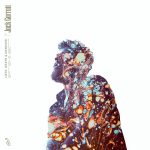
Atwood Magazine: I think this might be the first time we've ever spoken. So I want to just first of all say thank you for your time! It’s great to meet you.
Jack Garratt: Okay, thank you very much for wanting to chat! It’s really cool, I’m happy to do it.
So, where do I find you right now?
Jack Garratt: I am currently I’m sitting on the floor in London where I’m putting together my show. I’m about to go on tour for a couple of weeks in the UK and Europe – I say “I’m putting it together” – I’m sitting on the floor, while other much smarter, more talented people around me are putting the show together.
Editor’s Note: This conversation took place before the pandemic and nation-wide lockdowns brought touring to a standstill. Jack Garratt’s 2020 tour schedule has been postponed until further notice.
You know what, you're still part of the whole thing.
Jack Garratt: Yeah no absolutely – I mean, I’m the only one up on stage; I’m still keeping that part true, true to me at least. It’s a really fun show – I think it’s gonna be really fun. It’s very different to the last one, and I’m only going to be doing it for a limited period of time, which I’m quite excited about as well. So, I mean, all I can do is plan for it, fingers crossed the people actually enjoy it.
Right, right. Well, I did see you, a couple times back in 2014-16. I remember one Mercury Hall performance in New York City when the electronics blew out, and you were astounding – you got to show everybody how talented you were on the guitar, without the pyrotechnics.
Jack Garratt: I forgot – I totally forgot about that… Yeah, we blew the stage up and nothing worked. I just had to play everything on guitar, which – it’s always a fun challenge when that happens, and annoyingly at that time in my touring career, it was happening quite a lot.
Well, it was really impressive and I think that for me it solidified my respect for you, because I was able to see you how could adapt, and you could really put on a show no matter what obstacle was in the way. Maybe it was jarring, but it was really impressive!
Jack Garratt: Maybe I should actually start having fake breakdowns in every single show I do!
Right, haha – so! Getting right into it, it’s been four long years since you released Phase, and so much has happened. How have you relationships with those songs on that album changed over time?
Jack Garratt: They have grown, as I have, I think is probably the best way to put it – my attitudes toward those songs have grown and changed and kind of morphed themselves into new beasts as I’ve done exactly the same thing. A lot of them are actually quite triggering for me, just because of how long ago I released them, but also because of what they’ve ended up representing to me. They kind of represent a time in my career that I still to this day am quite confused and unsure of. There’s a lot that happened to me in that span of 2015, 2016, that was unpredictable and unquestionably brilliant – like the opportunities I was given were astounding, and I didn’t expect any of them at all – but also at the same time there was a lot of expectation on me to kind of perform as a certain kind of artist, and at the time I didn’t know what kind of an artist I was! I didn’t know what kind of a musician I was trying to be; I just knew I was enjoying making music, and then I kind of found myself on the back foot of a couple of awards that I was given. So when I listen to the songs now, it kind of evokes the same feelings. It’s like driving past your school that you went to as a kid: You know that it’s a really important part of your growth, but it also comes with the same feeling that you had, having to wake up at seven o’clock in the morning to make it to the bell at 9am.
Do you think that has to do with your jumping into things with a major label? Like, had you released music is independently for a few years at first, you might have been more prepared for what was to come?
Jack Garratt: No, not at all. I actually got an immense amount of support from my label. I signed with Island really quite early on in the UK, and then signed with Interscope in the US shortly after that. And the thing that I made very apparent to them from day one was that I know what I don’t like – I’m not very good at knowing what I do like. And I know the kind of artist I don’t want to be.
And I was really honest with them about that. I kind of sat in these meetings with the folks from Island and Interscope, and I did not lie to them: I wasn’t dishonest; I didn’t gas myself up to be an artist I wasn’t, either. I just very matter-of-factly told them exactly who I thought I was at the time, and it actually meant that I maintained a lot of control over my career. I didn’t get any pressure from them to perform or be, in a certain kind of way. I actually feel like I got more unnecessary pressure and unnecessary judgment from the journalistic side of the industry – and also from fans, who were told something about me that wasn’t necessarily true, like for example I was going to be the, I don’t know, “next Sam Smith” or “next Adele” just because of the awards that I’d won, that they’d also won. So no, I didn’t get any pushback from my label whatsoever; if anything I got the complete opposite: I got nothing but unwavering confidence and support from them.
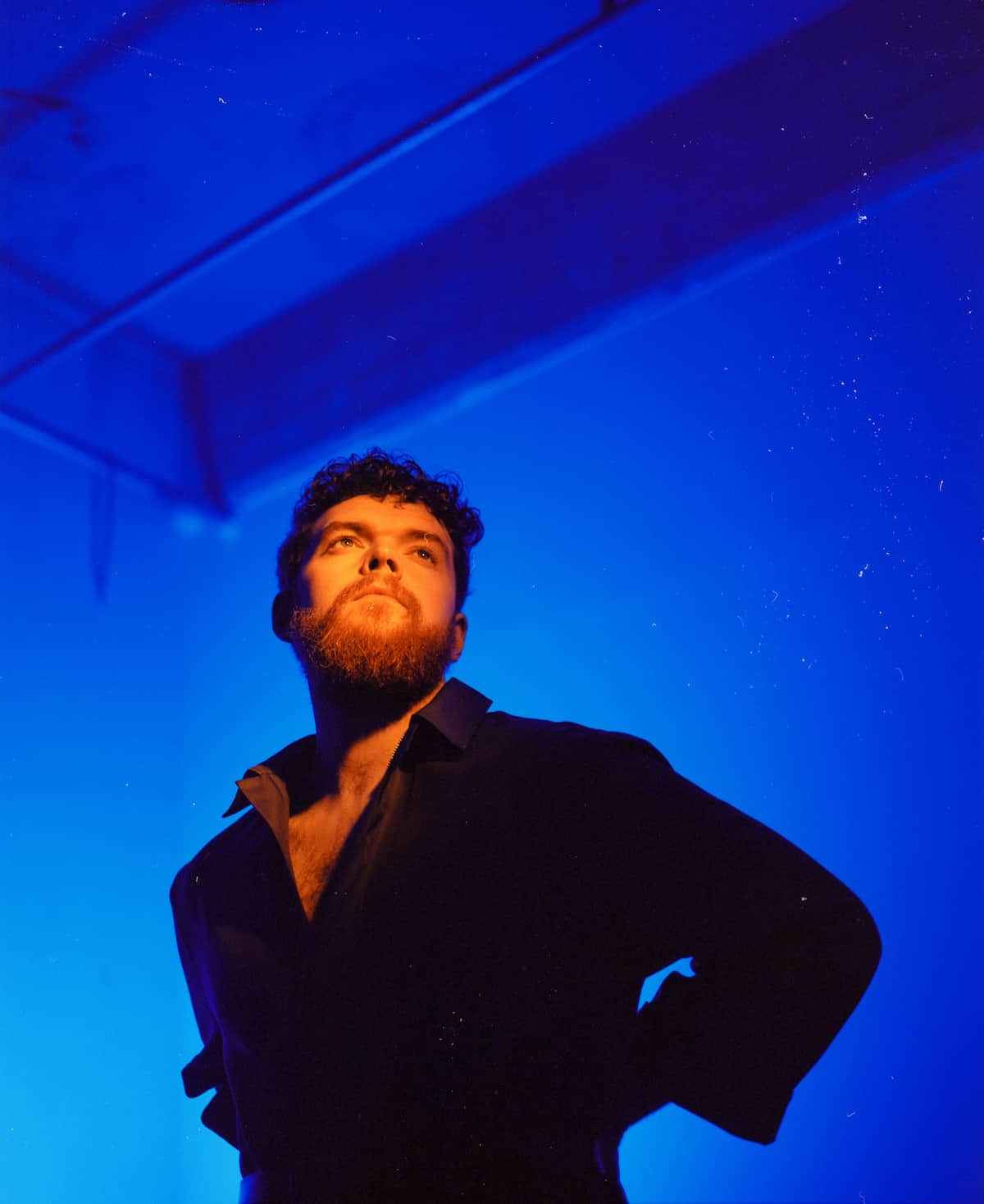
That’s wonderful. I can empathize with that pressure, whether it relates to the Brit school, etc.
Jack Garratt: It’s a strange thing, because I don’t know if that necessarily applies to me… It doesn’t “feel” like a school – I think what you’re referencing there is more like an analogy, like as in the School of people who have won those Brit Awards. I don’t know if there is a school, but you don’t learn how to do it. Like when I was given the Critics Choice, for example, I hadn’t had to do the research into how to win that. I was kind of given it beyond my own submission. I didn’t ask for it; it was handed to me. I was very thankful for it – it created an insane amount of opportunities for me, but like I said, what it what it did do was it tethered me to other artists who had won it, and those other artists that I was being compared to were artists who had then gone on to be great major names in households, to people across the world. Probably the most prestigious awards that I won around that time were the BRITS Critics Choice, and then also the BBC Sound Poll. In the history of those two awards, there’s only four people who have won them in the same year, which is Sam Smith, Adele, Ellie Goulding, and then me – and it’s fair to say that the world knows three of those people, and doesn’t really know one of them.
Hence all the comparisons, but that’s kind of what I mean when I say I found myself on the “back foot.” I was making this music I was really proud of, I was just making music that I loved, and then suddenly I had to kind of defend it as comparable to the likes of those people, which was never my intention – nor do I really think that’s my job to defend my music when it’s compared to other people’s music by journalists and people like that. It was a really strange time – I was questioning myself, and being questioned by everyone else.
That's fascinating. What would you say you're proudest of from your debut? What makes you look back fondly?
Jack Garratt: To be honest, the thing that makes me look back most fondly on it all is the music I’ve been making now. Like, I wouldn’t have been able to make the music I’ve been making over the last couple of years, and I wouldn’t be able to say confidently and proudly that the music that I just put out –the first batch of songs for the new record – I wouldn’t be able to say, as proudly, that I love them, if it wasn’t for the music I made beforehand. Phase, to me, is exactly what it sounds like – it’s busy, and it’s naïve, and it’s overproduced, and it’s overplayed, because it was me trying really fucking hard to be liked by other people. And part of what I’ve had to learn in the last few years, especially in the last year and a half or so, is that I’m never going to successfully make music for other people. That’s never going to be something that works for me. I have to be able to make music for myself – like, I have to be able to love the music that I make. I’ve always tried to pride myself on being someone who, I don’t release any music I wouldn’t listen to on the radio. I don’t release music I wouldn’t listen to at home. Just as a blanket rule, I think that’s a pretty basic filtering system for what I put out.
And I’m really lucky enough to be able to say that that’s still the case. I love that first album – it was me, in the first instance of my career, attempting to be what I thought I wanted to be. And I was challenged and I was questioned, and I was stopped at every turn and kind of forced to look at myself again. I am my harshest critic anyway as it is, and it really made me look at myself in a completely different way.
And it sent me into a very deep and dark depression that lasted a couple of years as well. From the other side of that, as I kind of managed to get myself through it, I was able to write music that I genuinely love! Like, what I’ve been saying about this record – about Love, Death, and Dancing – is that I wrote it for me, and I can honestly say I’ve hit 100% of my target audience.
That's amazing! How do you feel you've grown as an artist over the past four years?
Jack Garratt: I don’t know how I have; I just know that I have. I don’t have a reference point of where I’ve grown from. I haven’t listened to Phase in a very long time – I haven’t listened to my old music in a very long time. I don’t have examples at my fingertips of who I was; I only have examples of who I am now. So I don’t necessarily know how I’ve grown as an artist; all I know is that I’m continuing to make music that I really love, and the response that I got from everyone when we put out the first three songs has been phenomenal – so it proves that there has been growth! Like people’s attitude to this music is so different to the attitude that people had towards my first record, which was still positive – it’s just a different kind of positive. And I think that’s it – it’s like the overall emotion, the positivity, is still the same. There’s just a difference in the positivity, and it shows that there’s been growth; I just can’t put my finger on what that growth is.
You've named your second album Love, Death, and Dancing. Can you talk about that title?
Jack Garratt: The title was originally going to be ‘Songs about Love and Death that People Can Dance To,’ which I really loved, but was a little bit too new wave / romantics for me. And it was actually my wife who kind of suggested that I shorten it and just call it Love, Death, and Dancing. I sat with it for a week or so, and it really resonated with me, because all of these songs are about exactly that. I’ve always said that I like to make dance music for people who like to sit down, or dance music for people who don’t want to go out. That’s exactly what I like doing – I love listening dance music; I just much prefer listening to it when I’m at home in my living room with a blanket and a glass of red wine. Just because that’s where I enjoy listening to music doesn’t mean I should starve myself of a good four on the floor, and I think that I make music for that exact listener, because again like I said, that listener is me! And the only person I can really make music for is myself. So the title essentially came from that – also, I liked that it’s a list of things; I also like that it’s a list of fact, like it ties in really nicely to what the lyrical content of the record is – which is, it’s very honest; it’s very bare, it says exactly what it is: There’s no unnecessary, elaborate metaphor. It simply is an album of love songs, of death songs, and of songs to dance to.
It simply is an album of love songs, of death songs, and of songs to dance to.
What do you think draws you to these topics? Let’s talk about love and death.
Jack Garratt: I can only write songs about myself, right? That’s like the only thing I have any confidence in – of knowing anything about; it’s this the only thing I really have any right to talk about, is myself – my experiences with things, my understanding of things. It would be silly of me to assume that I could write on behalf of somebody else. I can only write from my perspective. The things that I know I am challenged by the most are the topics of love – and how I love myself and how I love the people around me; my fear of things ending – my fear of control, my fear of the death of things; those are the only two things I grapple with on a daily basis, and especially when I was writing this record, I guess specifically, those are the things I was grappling: Self-love and self-hatred; that my attitude towards myself within a day could flip between wanting to love myself and wanting to kill myself, in the space of 24 hours. It made sense to me to title the record with that similar honesty. It’s all I wanted to do on this record, was just be absolutely truthful about who I am, who I think I am, and who I am becoming – and to just try and tell the story of myself to the people who were willing and open to listen to it.
You’ve said you were scared to actually “say something real” on the first album. What is something real that you're saying this time around?
Jack Garratt: That I’m not whole. That I’m not finished – that I don’t think I’ll ever be. I’ve noticed in the last couple of years, there’s been a huge expectation on people of my generation – people now in their late 20s, turning 30 – there’s a huge expectation of us to accept ourselves for who we are, and to celebrate the things about ourselves that we might think are negative. So like for example, I’ve had issues with my body image ever since I was a kid. And I think I’m expected to love myself more the way I look, no matter what that is. And I always find that a really hard pill to swallow, because I’m not happy with how I look, and I’m fine with not being happy about how I look – like, that’s the kind of liberation I found in the last year or so, of growth as just a human. And that’s just one example of what I’m talking about: It’s a greater, more abstract narrative, which is that there are things I genuinely hate about myself. I believe that my goal, and my journey in life, is to accept and love the things I hate about myself – to love that part of me that hates me. Because if I can’t do that, that voice in me is so strong, and it’s so consistent, it will overpower me. The only way I can control it is to accept it for what it is and ask it what it needs from me to be able to get through the day.
That’s what one of the songs specifically on the first volume, a song called “Mara,” is particularly what that song is about: It’s a song about intrusive thought, and about ideas coming to us when we don’t want them to. You try and swat them away – if you didn’t have the idea, the idea came to you. And my thing is, “No, the thoughts that have come from our brains, they are of us. To swat them away would mean to disrespect ourselves; we have to ask those thoughts why they’ve come, what do they need? Do they need to sit down? Do they need some tea? Do they need to just sleep for 20 minutes? What does that part of me need to survive, so that I can survive and coexist with it?
I believe that my goal, and my journey in life, is to accept and love the things I hate about myself – to love that part of me that hates me
I actually I love “Mara” because you're reflecting on reflection, which I think is really powerful and something that a lot of us do, but don't always necessarily talk about.
Jack Garratt: Yeah, and also as well lyrically, a lot of the songs don’t resolve themselves. So like there’s a lot of reflective songs on the record, there’s a lot of questions being asked, and there’s not a lot of answers – because I don’t necessarily think that’s my job.
I also don’t think that there are a lot of answers to the questions that we have. None of the songs kind of end with me going, “And then I was fine,” because I’m not! I’m not going to be fine forever. I’m happy and content with myself at the moment, but I’m not going to be forever – and I’m not scared by that. I am proud of that.
Like, I love that my emotional journey is a cyclical one. It’s a snake that eats its own tail. At some point I will feel the same way I did today, in five years time – I’m sure I will. I can’t expect myself to, when I’m okay. To be so naïve to believe I’ll be okay forever. That’s not the goal – that’s not what life is, I don’t think. So, yes “Mara” continues to ask questions even all the way through the very final verse. It doesn’t ever say, “And then the story ends by something that it ties everything together,” no: It ends with a question, “Why do you stand there?” I might never know why my intrusive thoughts come to me, so I have to live with them.
I do really like that. Diving into some of these songs now. Our first introduction to your new music is “Time”: “You're overthinking, in a rut and terrified of giving into who you are and losing your mind,” you sing. Why introduce your music with this song?
Jack Garratt: (A) Because it was one of the first songs I wrote the record. It was the first song that I finished for the record. (B) Going back to the question you asked me earlier, I think it’s a perfect example of my growth as an artist and as a human. The reason I don’t really have any words for how I’ve grown, is because I think it’s proven in the music that I’ve made. “Time” is a hugely ambitious, wide-sounding, detailed answer about timelessness, and about cyclical time, and about repetition of emotion, and about acceptance. And that’s so much of what the album is about. It’s so much of what I’ve learned – just in my general mantra at the moment, I guess – my interest, like how I perceive the world. But also as well sonically, it’s identifiably me, but it’s a newer version of me. It’s me now. It’s not me then; it’s not me tomorrow; it’s me now. It’s a song I’m really, really proud of. I think also as well, I love that it was the first one I finished, and now it’s the first one that people hear. It’s linearly showing people the first moment when I realized I’d written a good song – because when I was writing “Time” was the first time in about two years that I went, “This is good and I like it,” and I’m glad – I’m really, really fucking happy that that’s the first song I get to share with people, is a real moment where I was proud of myself for the first time in about two or three years.
Wow, I'm happy for you. Sitting with that song, “Time” makes me think about my own mortality, which is my biggest fear – and it's my demise that scares me, but it's not being here that scares me. And it makes me think about that, but then the lyric, “time is on your side” is a really uplifting line that kind of offers the counterbalance to that question of existence.
Jack Garratt: Yeah, but it also doesn’t act as an excuse, though I don’t think. It’s not saying, “therefore procrastinate” – it’s saying. “therefore get your shit done.” It’s saying, “time is on your side, but” –
You’re here now.
Jack Garratt: – I mean, it’s up to you, how you use it. I’m a huge procrastinator – I will wait and wait and wait until I have to do something. This song isn’t supposed to be, “Oh by the way, there’s comfort in knowing that you have tomorrow.” The point of the song is supposed to be slightly disconcerting and slightly pressuring in the sense that, “Okay, you have tomorrow; you might have the day after that, and you might have time forever, but it’s on your side – sure it’s there for you, but you have to use it.”
I’m so bad at that – I’m so bad at actually being able to benefit from having time. But also the song talks about aging in a kind of roundabout way as well, because my biggest fear has been growing up and not realizing my full potential. It’s been like, nearly 30 (as if that means anything), because I’m told it does, you know, like whether I believe it or not I’m told constantly that “30” is a thing for some reason. And I’m constantly reminded every day that maybe I haven’t done everything I wanted to do. I turn 30 in two years, and by that time I would have released two albums, definitely for sure – maybe three if I get my act together – but I’m constantly expected to measure myself up to my peers who are releasing music all the fucking time, and I don’t do that. And it scares me, because I think, “Well am I supposed to be doing that?” but then another voice goes, “No, you do what you’re supposed to do,” and I don’t know who to listen to. So all I have to do is listen to myself, and myself says “You have all the time in the world to do whatever you’re gonna do.” It doesn’t say, “You have all the time in the world to hit XYZ”; It says, “You have all the time in the world to do whatever you’re going to use that time for.”
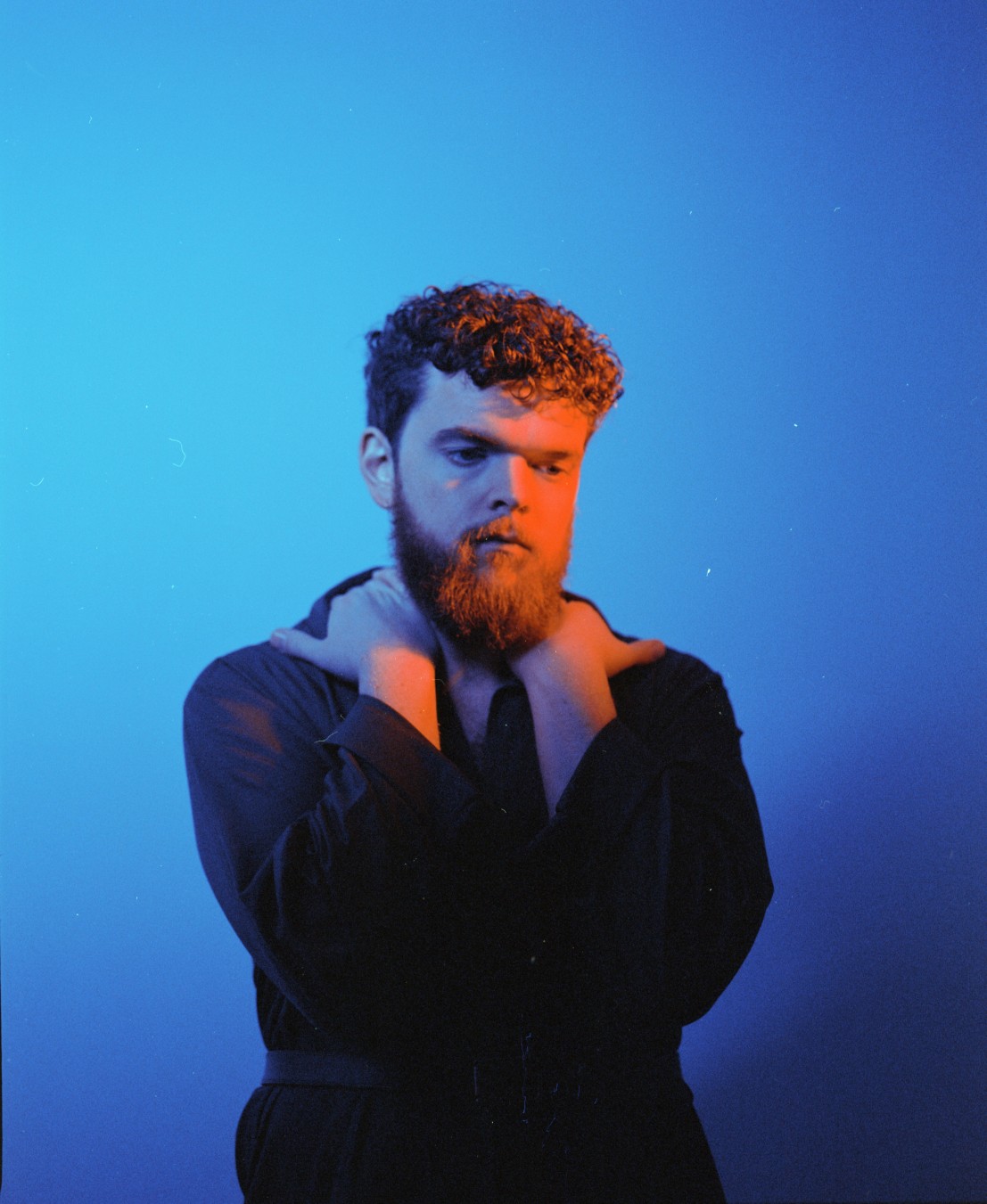
I like that a lot. So, “Return Them to the One” is possibly the most intense out of your introductory three songs. “I'm not the main event,” you sing. “Oh won't you take me as I am?” I really love how introspective intimate you get: “I am alive here, but I'm not permanent. I'm reminded by my pain, but I must remain here until no more life remains. Oh won't you take me as I am?” It's so real, like you're trying to make a time capsule of who you are in this moment through music.
Jack Garratt: I’m weary to talk specifics about what those lyrics actually mean for me, because I don’t want to disturb anyone else’s listening experience – but that whole song is about me performing live. Like, that’s my experience: The whole point of that song, it’s from the perspective essentially of me going onstage for the last show I did in 2016, before I went home with my now-wife, when we were living in Chicago at the time. It’s a song I’m singing in my head, essentially, before I’m about to walk onstage. So like, the whole point of it is quite a literal song talking about how I physically gave too much of myself every single night for about three, four years of constant touring – and how that’s impossible to do that; it’s unsustainable, but because it was what I was doing regularly, it’s what people ended up expecting of me, and for fear of disappointing anyone I forced myself to just give 100% of myself. But the problem with giving 100% of yourself is technically, you have nothing left to give, but you’re expected to give 100% of yourself the next day, and the next day, and then maybe you have a break and what, replenish 30% of your sustenance? If you want to think about it like that. But the whole song is literally about that – it’s about me just wanting to go home and be with my wife, and not being able to, because I’m out doing something else that I love. It’s like, being in this job is conflicting – it’s strange, and I don’t know if I’ll ever understand what my purpose is within it. All I know is I love being on tour, when I’m not on tour. And I hate being on tour when I am on tour.
It's that moment in-between, before you step on tour and before you leave tour. That's the sweet spot.
Jack Garratt: Yeah, exactly. It’s the only time I’ve ever been truly happy! (laughs)
Can you tell me about the video that you've put out alongside “Time”? What inspired you to dance? What inspired you to create this exciting visual?
Jack Garratt: We did eight videos in four days. Through the two a half years that I was off properly – it’s four years I guess since I’ve really released music, but in the almost three years since I haven’t been touring, from 2017 to now – I lost all confidence in myself: Just all confidence in my ability to do anything. The reason it’s taken me so long to make any music is because it’s taken me a really long time to find any semblance of confidence in any of the ideas that I have.
Being able to delegate and work with other people on this record has really helped me find some of that confidence, because I was in rooms with people who were excited to be with me, who trusted my vision, and who encouraged it – you know, like I co-produced half of his record with a producer called Jackknife Lee, and the other half with a really dear friend of mine, a guy I’ve known for about nine years, James Flanagan. And I co-wrote al the lyrics with the best lyricist in the world and my best friend for 10 years ago, a guy called Henry Brill. They all helped me realize that I was good at what I do! I still don’t necessarily believe it, but they were very good at convincing me for a second. But something I used to do a lot when I was a kid, especially when I was feeling really good about myself, was that I used to dance – when I was a teenager, I loved it. In my early 20s I used to dance all the time – that’s how me and my wife fell in love, was we would dance together at this little venue called the Notting Hill Arts Club in Notting Hill, which was five minutes from where we were living at the time. We’d shut the place down at three o’clock in the morning dancing to Justin Timberlake’s “Like I Love You.”
And then, when I started putting music out into the world and I opened myself to an unhealthy level of scrutiny, I stopped dancing: I stopped doing anything that was overly confident, and I lost confidence in myself because of that. I didn’t feed myself with a healthy amount of ego and arrogance to kind of fuel my love of myself. I drained myself of it completely. So, when it came to making this record – and like I said earlier, these lyrics are supposed to just be exactly what they’re about, which is about me finding love for myself somewhere – I wanted to find a way to visually represent that, so I came up with this idea about telling this slightly abstract narrative about me and my relationship between the camera and the spotlight, and that versus me and the relationship between my shadow and my past. Another friend of mine, one of my best mates for about 10 years as well, director and writer Tom Clarkson, he and I have written and directed this eight song long visual that tells the story about me, performing and dancing to a camera.
So there’s no other performers on the screen; there’s no one else doing any of the dancing. It’s just me. I worked really hard with an amazing choreographer called Liv Lockwood. She and I choreographed the whole thing together, and it was fun and free to be able to just dance again – because I’ve not done it in so long. But again, the whole point of it is that I wanted to challenge myself by doing something I used to love doing, that now filled me with absolute fear and terror. I wanted to challenge myself and prove to myself that I could do it, and also prove to other people that I’m no longer here, performing for them. I’m here performing for myself, if that makes sense.
It sounds like this time in your life has been one that's been full of self-renewal and finding fulfillment from a dark period, but it hasn't been one of relief or catharsis.
Jack Garratt: No, not at all. And I think the best thing about that is there’s liberation to find in that – that that itself can be its own release. Not expecting there to be this moment of eruption where you go, “Oh! Suddenly everything makes sense!” Instead, it’s a slightly more blissful peace that comes and says, “Everything is what it is.” There’s balance, I guess. I haven’t resolved; I haven’t fixed myself. I’ve stopped trying to fix myself, and that’s made me love myself more.
I think as an editorial writer trying to figure out how music fits into the world, I often try to put things into boxes and make sense of things, and I often tend to oversimplify music especially. I like that what you're saying is, it can't be simplified: It's not simple.
Jack Garratt: Yeah. And I think also it’s to challenge the audience to believe that as well. Like, that’s something I’ve really tried to do with my music – I don’t think that my music is holier than thou; I don’t think it’s the best thing that’s ever happened to the music world (and I say that as a precursor to what I’m about to say, which is), but I do want people to work for the satisfaction of listening to it.
I want the audience to really listen and want to listen! I want to have made music that hits people enough that they want to listen again. And so when they listen again, they’ll find something new. And in the same way that it’s like an editorial writer, it’s easy to simplify things because that’s what makes your writing accessible to a mass amount of people who are going to be able to go, – you know, the best example I can give is I’m often compared to other musicians because that’s how you get people to understand what my music sounds like – but my issue with that is, I’ve been compared from everyone from Bon Iver to Imagine Dragons, and to me, therefore, there must be an issue with the system, because of just how polar opposite that feels to me, and also how incorrect I think those comparisons are. My goal is to sound like Jack Garratt – that’s all I’m here to do. My definable sound is the name that I have. My favorite musicians have been able to do that, and they’ve been able to do it in a way that crosses the boundary between art pop and mainstream pop, you know – David Bowie; Imogen Heap; Prince; Stevie Wonder – all of those people, no matter what place they’re in, no matter what they’re doing, you know it’s them – they are their own identifiable sound. That’s all I want to be, that’s all I want to do – and I think that’s what I’m doing.
Yeah, I'm guilty of comparing you to Oh Wonder, Honne, Chet Faker, The xx, and Jarryd James. Huh!
Jack Garratt: And I see everything that you’re talking about –
(laughs)
Jack Garratt: – but I would also say you’re totally wrong! Because it’s flippant, doing that. It’s correct for the moment that you’re doing it for, but it’s incorrect any other time. There are Oh Wonder songs that exist that I sound nothing like, so it seems so strange – and I’m not saying this berating you; I’m saying this as a genuine fan fascinated by the practice of it. And I do it all the time as well, like when I’m trying to get my dad to listen to The Black Keys, or The Belle Brigade, who are a band I absolutely love who inspired so much of this record, and Ethan Gruska especially, who’s just released his second solo record, before that came out I was listening to his first record which is called Slowmotionary. I was literally like, “Oh Dad you’ll love it, it’s a little bit Paul Simon, it’s a little bit Rufus Wainwright, it’s a little bit this, it’s a little bit that,” because that’s easier – that’s gonna make him want to listen to it; like I get it, but I wish I was able to say, “It’s this guy and you’ll love it, trust me.” It does fascinate me – again, there’s no answer to it. I don’t think there ever will be an answer – I think people are going to compare music to other music forever and ever, but with that in mind, all I can do with my music is just continue to inarguably and undeniably be Jack Garratt.
Yeah, I love that, and I think that's a great thing to aspire to, especially when you're making music, is to say, “I want this to be singular. I want this to be me.”
Jack Garratt: Yeah, exactly, and I think as well there’s so many artists who are just doing it now. I think it’s going to be a really exciting few years of new music, and musicians who are coming out of other projects and who have done other things. The Hayley Williams record that she just put out is fucking brilliant, and I was an avid Paramore fan when I was like 14, and I absolutely put my hands up and said I wasn’t into the later Paramore stuff that they were doing – the more poppier stuff, it just wasn’t really for me. This Hayley Williams single, “Simmer,” is brilliant. Like it’s challenging – it’s a tough listen not for bad reasons, but for fucking brilliant reasons. It is musically astonishing; I could live in that world for a very, very long time, and the most brilliant thing about it all is that the reaction from it, publicly, has been nothing but positive. People are into music that’s making them listen to it. I think that’s fucking brilliant – I’m very excited to release music in a world where audiences are just up for anything.
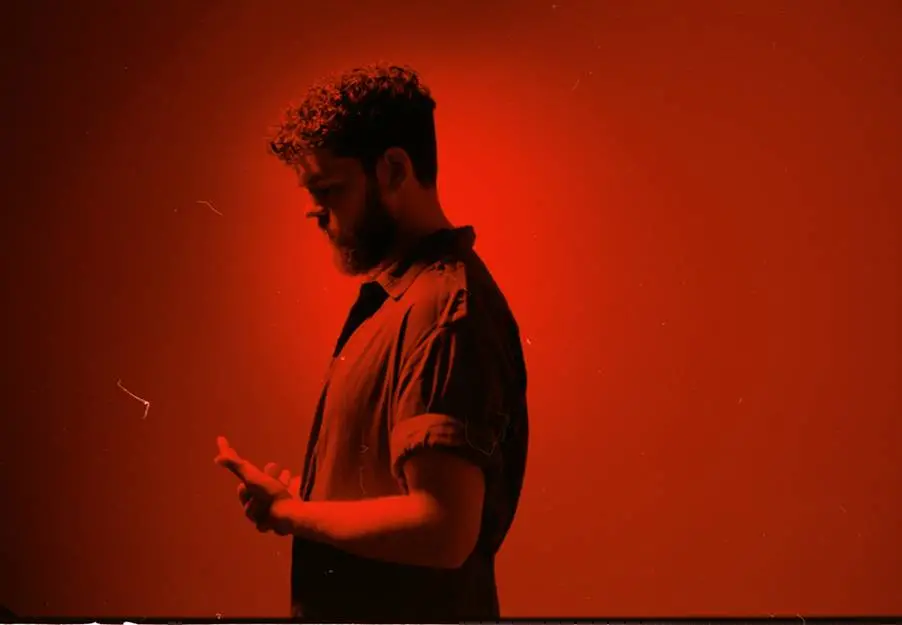
That kind of brings me to wrapping this up. First of all, thank you so much for our conversation. What are you most excited about now that you're “back” into the spotlight, as it were?
Jack Garratt: I mean now that I’m back, I’m very excited to go away again.
It's true; that period of darkness is about to come again, where people are going to start talking about you and relating you to things. Are you ready?
Jack Garratt: Yeah I know it’s happening and it’s already happening. Actually, I’ll be very honest, since “Time” has come out, I’ve not seen many people comparing it to many things – which, again, gives me nothing but encouragement about a new way of just talking about and making music. I think that I’m most excited about what I was saying at the end of your last question, which is that there seems to be a general attitude of people who are just up for listening to music. And I don’t say that as if to belittle the listening experience for the last 5 or 10 years or whatever. I see that as a genuinely prosperous and brilliant thing. I think pop music is going to change; I think we’ve seen it change with the rise of Billie Eilish and the work of her and Finneas have done. The proof is in the pudding that you can make pop music that encourages people to sit up and listen, and they will sit up and listen. Like, the rise of Rosalia, like these fucking amazing artists who are just making great music, they’re not trying to make pop music, they’re not trying to make folk music, they’re not trying to be anti-“big label” nor are they trying to be “anti-indie” or anything. They’re just making fucking great music, and I can’t wait to be a part of the music industry that encourages people to make great art, and then spread it and give it to the world, and encourage people to listen to it. I think it’s just going to be really fun; it’s going to be a challenge, it’s going to be interesting to see where it goes, but I’m looking forward to just being a part of it.
You've just described what we're trying to do here at Atwood. The whole point is promoting the music that we like and the art that we find really captivating.
Jack Garratt: Just before you called, I was reading a Q&A with Jesca Hoop, who, I absolutely adore. Her record, Stonechild, I found it last year and it floored me entirely. It seems like you guys are doing exactly that, and I think that’s a big part of it as well – creating the discussion, creating the communication, allowing audiences to actually talk honestly about all types of music – not forcing fandoms to exist, and instead encouraging… I don’t know; I’m repeating myself.
Usually I would end this by asking who you're listening to right now, that you would recommend to our listeners, but I feel like we've already gotten a ton of different examples just from our conversation.
Jack Garratt: Yeah, I’m building a little playlist at the moment as well, of music I’ve been listening to while I’ve been making the record, and then music I’ve been listening to while mixing and mastering it. It’s everyone from, like I said Jesca Hoop is on it, Tobacco is on it, Belle Brigade is on it, Ethan Gruska is on it… Leon Vynehall. He’s a house artist, an electronic artist who’s absolutely amazing. Lapsley is putting out some amazing new music at the moment… Talking Heads, obviously. John Wizards, who put out one amazing record in 2015 and then disappeared forever; I have no idea where they are, but they’re absolutely incredible. They’re South African and they’re just brilliant. I’ve been listening to a lot of John Taverner as well – a lot of classical and contemporary classical music, just to try and wake my brain up a little bit. Micah Levy, whom I fucking love… There’s just great. It’s great people making great music, and I’m very excited to have my music maybe be a part of that.
I think it's really exciting to be in a time where you feel inspired. When I was in my teens in 2000s, I was always going, “new music sucks right now,” but I think that no matter where you are in time, if you're looking for it, you'll find good music and you'll find inspiration, whether it's in art, whether it's in dance, whether it's in video, or music.
Jack Garratt: And now more than ever, especially given how many songs are released every day. There’s so much new music, and I think there’s a danger that it forces people to hide and just stick to what they know, which is a danger and like I said, that’s kind of part of the challenge I think that the future of music is going to have to face. But that being said you’re absolutely right: If there are people out there who genuinely think that there’s no good music that’s new, they are just completely wrong, because there is so much of it that it is impossible to say that there’s nothing there.
Listen Jack, thank you for the new music. Your songs are truly special, and it sounds like from your perspective, they really are. Congratulations and thank you for your time!
Jack Garratt: Thank you Mitch, I really appreciate it! Thank you for the questions; they were really insightful and really fun to answer.
— —
:: stream/purchase Love, Death & Dancing here ::
— — — —

Connect to Jack Garratt on
Facebook, Twitter, Instagram
Discover new music on Atwood Magazine
? © Jack Wangner
:: Stream Jack Garratt ::

